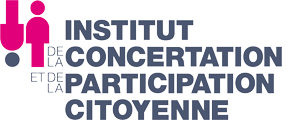The political context is ripe to build capacity on genuine engagement of citizens in policy matters and the production of knowledge that informs policy making. Democratic institutions are evolving and so are the media through which citizens can, like never before, express opinions and concerns, contribute their insights and ideas to remedy to current challenges, calling for institutional anchorage and dedicated space to carry out citizen engagement. In this training we will go beyond the why informing the policy cycle through engagement of citizens, to actually initiate the participant in the ‘how’. Hence, the training course represents a concrete effort at institutional levels to walk the talk of societal engagement, as well as to a need of the institutions to understand, implement, navigate and find places whereby insights, expectations and imaginaries of citizens in matters of concern to all can be explored and followed-up.
The fundamental assumption of this training course is that engagement of citizens is needed to ensure quality of policy design in situations of complexity and uncertainty, a characteristic that permeates most areas of policy making today. In a nutshell, the training offers a rationales, dives into the current political and social context and institutional opportunities, to then present methods of citizen engagement and the work with the engagement cycle.
It aims at any policy or scientific officer that works at the interface of science, society and policy and wishes to go slightly beyond understanding rationales.
The training will consist of four main modules:
- Rationales of Citizen engagement across public policy settings
- The policy context and provisions in the house [e.g. COFE]. The competence centre on participatory and deliberative democracy.
- Methodologies to engage citizens beyond consultation.
- Planning
The training offers hands-on and practical exercises, in which participants will be invited to work on a case.
By the end of the course, participants will understand/know/be able to:
- Grasp the rationales of citizen engagement especially in policy making and science for policy making,
- Know the basic principles of good practices in citizen engagement,
- Understand the basic differences among deliberative and co-creation methodologies, as well as online and physical methodologies,
- Know the basics to plan citizen engagement,
- Know where in the Commission help can be sought to implement own processes, including the upcoming Competence Centre for Participatory and Deliberative Democracy.
